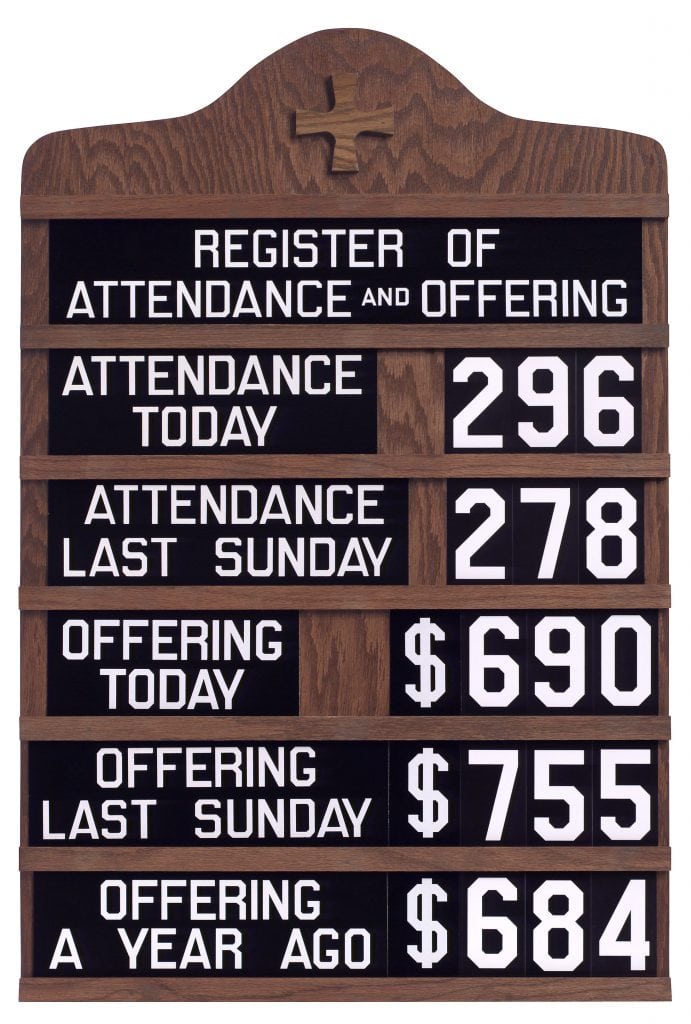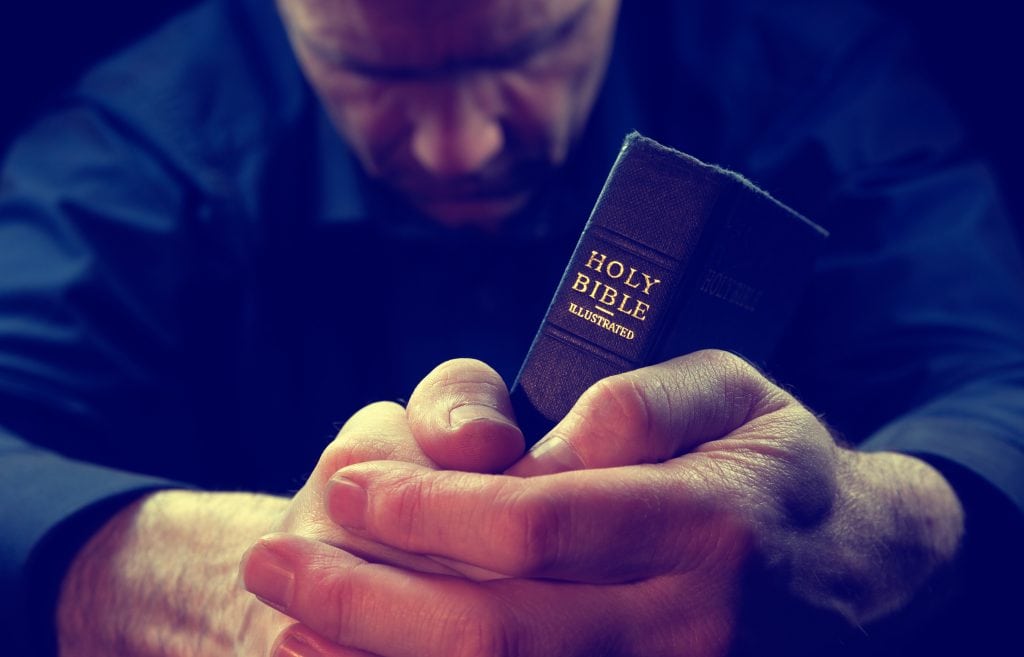filter posts:
Date
It doesn’t get any better than this
 It was the winter of 1998, and the four oldest Fox children had walked from our house in Graham over to the Pine Cemetery, pulling their sleds behind them. There’s a great hill in the cemetery that a lot of the kids in the neighborhood would sled on. They had been gone for about an hour when Jesse, then 4 years old, asked his Mom, “When are they going to come back from the grave?”
It was the winter of 1998, and the four oldest Fox children had walked from our house in Graham over to the Pine Cemetery, pulling their sleds behind them. There’s a great hill in the cemetery that a lot of the kids in the neighborhood would sled on. They had been gone for about an hour when Jesse, then 4 years old, asked his Mom, “When are they going to come back from the grave?”
We celebrated the greatest news the world has ever heard last Sunday, the news that Jesus Christ came back from the grave. We continue to celebrate that news, every day. It is the foundation of what we believe, and a solid foundation it is, indeed. For centuries Christians have lived with hope in the midst of suffering, have read His Word and kept His commandments, have gathered with others who believe and given their lives to telling the story, and have even given up their lives to follow Him. But dear readers, we live in a world that is increasingly skeptical of the absolute truth of the gospel, a world that is willing to believe almost anything except that Jesus Christ is God and died for their sins and rose from the dead and is the only way to the Father.
I read a Barna Research poll last year that revealed fully one-third of those who claim to be born-again Christians do not believe that Jesus came back to physical life after He was crucified. What? That’s like saying, “I believe that Michael Jordan is a businessman, but he was never a basketball player.” Saying you believe in Jesus, but not in His physical resurrection is like saying you believe in Christmas but not in Jesus’ birth.
Some believe the resurrection of Jesus is no more (maybe less) than a fairy tale. I had a good friend in graduate school who went on to get his Ph.D. in English and teaches at UC-Davis. We had lots of discussions about God and Jesus and the Bible, most of which he just would not believe. When we had our first child, my friend, Steve, sent me a copy of Mother Goose’s Nursery Rhymes and wrote in the margin to Micah that his Dad should read these to him every day. Well, if Jesus is not raised from the dead, then we might as well read Mother Goose for devotions and memorize the rhymes and believe in Humpty Dumpty. Maybe, just maybe, the king’s horses and the king’s men will be able to put him back together again. That could be our only hope, without the resurrection of Jesus Christ.
Take a look at Paul’s argument for the resurrection in 1 Corinthians 15, beginning in verse 12. This passage is still being used in some law schools as a classic example of sound reasoning. Paul starts the chapter, however, by delineating four truths that are of first importance. 1. Christ died for our sins. 2. He was buried. No swoon theory where Jesus was later revived in a back alley somewhere and then somehow pulled off the greatest hoax in history. No, he was dead and buried. 3. He was raised on the third day. Without this truth, the first two are meaningless. 4. He appeared to many after His resurrection. Without this truth, the third truth is cast into shadow. His body is gone, but where is He?
Jesus Christ is risen, and has become the first fruits of those who die in Him. That means we who believe in Him will also be raised from the dead.
It really doesn’t get any better than that.
April 24, 2017
Some things you just don’t borrow
 How many of you remember your Mom’s stern warning to you as a child: “Do not borrow anybody’s comb!” My Mom was pretty convinced that if I ran someone’s comb through my hair, I would instantly be infested with microscopic creatures that would eat through my scalp and destroy me and life on the planet, as we know it. She even said I would be better off drinking out of somebody else’s cup than to use their comb. So I went through my childhood with an irrational fear of hair germs and would break into a cold sweat when I saw teens sharing their combs (or their picks…remember those?) willy-nilly, without regard for life or limb or scalp. I was convinced that’s why this kid in high school named Chad went bald at 18. He was probably sneaking behind the gym with borrowed combs almost every day.
How many of you remember your Mom’s stern warning to you as a child: “Do not borrow anybody’s comb!” My Mom was pretty convinced that if I ran someone’s comb through my hair, I would instantly be infested with microscopic creatures that would eat through my scalp and destroy me and life on the planet, as we know it. She even said I would be better off drinking out of somebody else’s cup than to use their comb. So I went through my childhood with an irrational fear of hair germs and would break into a cold sweat when I saw teens sharing their combs (or their picks…remember those?) willy-nilly, without regard for life or limb or scalp. I was convinced that’s why this kid in high school named Chad went bald at 18. He was probably sneaking behind the gym with borrowed combs almost every day.
There are some things you just don’t borrow. Like mouth guards, if you are playing on the basketball team, riding the pine, and suddenly the coach yells for you to get in the game. I never expected that to happen. I was one of those guys at the end of the bench who, if this were a Final Four game, would be locking arms with the other benchwarmers as the starting point guard stood at the free throw line, trying to ice the victory. I never expected to be put in the game. We couldn’t be enough points ahead for the coach to put me in the game. But here he was, calling my name, and I can’t find my mouth guard. Hey, better to risk losing all my teeth in the lane as I am bumping armpits with my head, while trying to get a rebound, than to borrow a mouth guard from Lewis, the kid on the bench even further down the roster than me. I am pretty sure that Lewis kept his mouth guard inside his tennis shoes when they weren’t on his feet. For all I knew, he may have thrown his comb in there, too. No way am I borrowing his mouth guard.
There are some things you just don’t borrow. Like burial plots. I mean, once you are dead, you’re dead, right? There is no way you can borrow a burial plot. You can only borrow something that you intend to give back.
Check the records. There is a burial plot in Jerusalem owned by a certain Joseph of Arimathea. When Jesus of Nazareth was crucified nearly 2,000 years ago, Joseph asked Pilate if he could take the body of Jesus. He put Jesus in “a new tomb in which no one had yet been laid.” Three days later, that tomb was available again because Jesus was raised from the dead, just as He said He would be. You know what is interesting about the Son of God? He entered the world through a virgin birth. He entered Jerusalem for His final week on a borrowed donkey colt, one that had never been ridden. He was laid in a borrowed tomb on Friday, which He gave back on Sunday.
There are some things you just don’t borrow. But I will be eternally grateful that Jesus borrowed His gravesite. That means I will only be borrowing mine for a while, too.
The angel said of Jesus, “He is not here, for he is risen, as he said. Come see the place where he lay.” This, my friends, is why we celebrate Easter tomorrow, and every day: Jesus rose on Sunday, and conquered sin, death, and the grave.
April 17, 2017
What we measure reveals what we value
 One of the questions I was asked to address with a group of pastors and church leaders in Virginia several years ago was “How have you avoided legalism in your church?” I responded that I think the key to avoiding legalism is keeping the main things the main things. Legalism happens many times in a church simply because the pastor or the elders inflate the importance of externals and underplay the importance of heart issues. The Pharisees had the externals down; they were nearly perfect in every way…on the outside. But inside, Jesus said, the Pharisees were filled with dead men’s bones. They were hypocrites, and therefore could not afford to ever let their guard down and be real with each other. The heart issues remained hidden to all but Christ.
One of the questions I was asked to address with a group of pastors and church leaders in Virginia several years ago was “How have you avoided legalism in your church?” I responded that I think the key to avoiding legalism is keeping the main things the main things. Legalism happens many times in a church simply because the pastor or the elders inflate the importance of externals and underplay the importance of heart issues. The Pharisees had the externals down; they were nearly perfect in every way…on the outside. But inside, Jesus said, the Pharisees were filled with dead men’s bones. They were hypocrites, and therefore could not afford to ever let their guard down and be real with each other. The heart issues remained hidden to all but Christ.
I went on to relate this to how we raise our children. What we praise in our children will be emphasized in their lives: their looks rather than their character, their talents rather than their servanthood, their intellect rather than their heart for God. If our emphasis is on the externals, then we are raising little Pharisees who will make their lives (and those around them) miserable. What we praise in our children will be those things we value the most, and which they will develop with the most zeal.
It is the same with a church. What we celebrate as a church defines what is important to us and ultimately what we will become. I heard a great teaching on this a while back at a luncheon for pastors. The speaker, Rick Sessoms, said that the “products and practices” of a church do not happen in a vacuum but are the direct result of what the church really values. The question for a church then is simple: How do we know what we value? Sessoms offered the following questions as guidelines.
- What do we measure? If the definition of success for a church has to do with nickels and noses, bottoms in the pews and bucks in the plate, that may be an indication of what matters most there. Jesus said it plainly: “Where your treasure is, there will your heart be also.” 2. How do the leaders respond to crisis? Do we ‘shoot our wounded’ or offer them grace and help to overcome? 3. What do the leaders model and teach? A church whose convictions are rooted in fear will not produce healthy fruit. Fear that everyone will not behave exactly the same way, for example, can lead to external controls resulting in fake smiles and play-acting pew-warmers. Also, do the leaders possess on Monday what they ‘profess’ on Sunday? 4. How do we allocate scarce resources? This is a crucial test for a church. During tough economic times, does the church cut funding to missionaries who are depending on them for support? 5. What behavior do we (really) reward? Do we applaud those who are successful in business because they help fund the operation of the church while overlooking the fact that their families are falling apart?
What can we do with this information? I think we can and should evaluate our own lives and the life and health of our churches, to see if what we value are the same things Jesus taught and modeled for His disciples. Those things will be matters of the heart, matters of character, development of leaders who know how to lay down their lives, compassion for the lost, and wisdom that is anchored in the Word.
April 10, 2017
Call for the elders to pray for you
 James tells the church that if anyone is sick among them, they should call for the elders to come and pray over them. Let’s think about that for a moment. First, for the young readers, “sick” is a serious word here that means there’s something wrong. I understand that some of you use the word as a synonym for awesome, as in, “Man, that dude on the guitar is sick.” I can assure you that James is not asking for the awesome people to call for the elders. No, these were people who were ill. Infirm. Not well. And based on the text, probably not ambulatory. They were most likely at home, in bed. What should they do?
James tells the church that if anyone is sick among them, they should call for the elders to come and pray over them. Let’s think about that for a moment. First, for the young readers, “sick” is a serious word here that means there’s something wrong. I understand that some of you use the word as a synonym for awesome, as in, “Man, that dude on the guitar is sick.” I can assure you that James is not asking for the awesome people to call for the elders. No, these were people who were ill. Infirm. Not well. And based on the text, probably not ambulatory. They were most likely at home, in bed. What should they do?
Call for the elders of the church to come and pray. Let me hasten to add that this means of grace is not mutually exclusive from the means of grace God has given us through medicine and doctors. But most people, even Christians who know what the Word teaches, will not consider this option and even see asking for prayer as a last resort.
The first question to ask James is, “What church?” Well, the one they are in, the one they are committed to. This passage, along with several others, makes a strong case for church membership. We are called to commitment to a local church, not just casual acquaintance with one. This passage also makes a case for a plurality of elders. Notice James doesn’t instruct the sick person to call for the pastor, but for the elders. Plural. You can find the qualifications for elders (or pastors, or bishops, or overseers, or any other title you want to bestow on those who lead the church) in 1 Timothy 3 and Titus 1.
The second question is, “Who is responsible to get the elders to come and pray?” The ones who are sick! They are to take the initiative. They are to call for the elders, not on a whim, like, “Oh good grief, I’ve tried everything else, maybe I’ll give the elders a go at this.” They call for the elders because of the spiritual authority these leaders have been given. And they call for the elders because there is faith even in taking the initiative.
I think that’s in part why Jesus asked a lame man at the pool of Bethesda, “Do you want to be healed?” The man had been a cripple for 38 years. Of course he wanted to be healed! But wait, if that seems so obvious to us, why did Jesus ask the question? We know that Jesus never asked a foolish question, or an unimportant question, so we have to admit that Jesus asked because He knew some people do not want to be healed. Ray Stedman wrote, “I know many people today who do not want to be healed. They do not want to receive divine help in their problems. They do not want to be helped out of their weakness. They love their weakness, their helplessness. They are always craving the attention of others through their helplessness. They sometimes flee assuming responsibility for their own lives. I have even seen people turn their backs on a way of deliverance they knew would work, because they did not want to be healed.”
The initiative of the sick is essential, as is the response of the elders. Is anyone among you sick? Let him call for the elders of the church. Calling for the elders is a way of saying to the Lord, “I want to be healed.”
April 3, 2017
